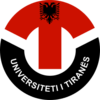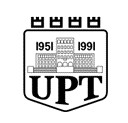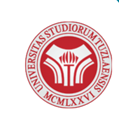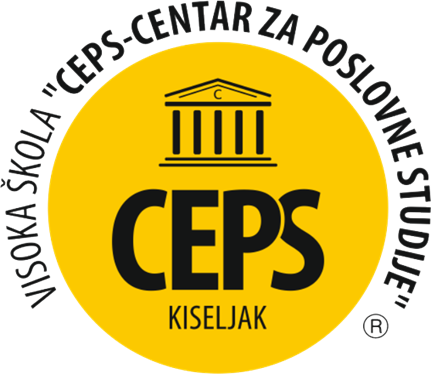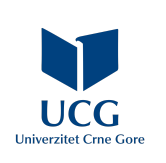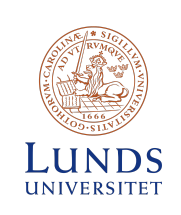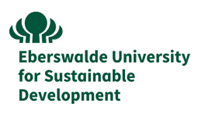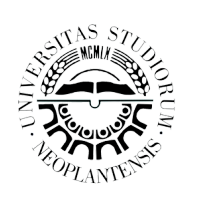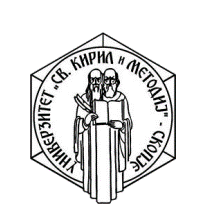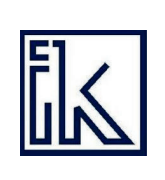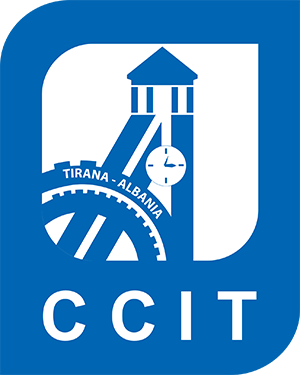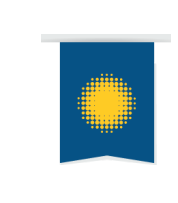Polytechnic University of Tirana has been founded in 1951 as a state chartered institution in Tirana, under the name of Higher Polytechnic Institute. The Polytechnic Institute consisted of several main engineering schools such as Mechanical Engineering, Electrical Engineering, Civil Engineering and Geology and Mining. In 1957, the State University of Tirana was established by gathering all existing higher schools defining them as Faculties. The Faculty of Engineering integrated into all the former schools of the Higher Polytechnic Institute, where wide spectrum knowledge engineers graduated according to the four respective engineering fields. Polytechnic University of Tirana (PUT), has been founded in 1991 by the DCM No 215, dated 15.07.1991, due to the detachment of all Engineering Faculties from Tirana University and their integration into. It consisted of four faculties: Mechanical Engineering, Electrical Engineering, Civil Engineering, as well as Geology and Mining.
In 2007, PUT consisted of six faculties as two of them; Faculty of Information Technology (FIT) and Mathematics and Physics Engineering Faculty (FMEPE) were added to the four existing ones. On the other hand, in accordance with the law On Higher Education in the Republic of Albania, no. 9741 dated 21.05.2007, again changes were introduced to the PUT’s organizational structure. In 2011, two other scientific structures: the Institute of Energy, Water and Environment (IEWE) and the Institute of Geosciences (IGS) became part of PUT, by Order of the Minister of Education and Science, No. 371, dated 28.07.2011; On the establishment of the Institute of Geosciences and Energy, Water and Environment (IGEWE), in the Polytechnic University of Tirana, the two above mentioned institutes were integrated into one. In January 2013, by Order of the Minister of Education and Science No. 28, dated 31.01.2013, the Department of Architecture and Urban Planning, part of Civil Engineering Faculty, became Faculty of Architecture and Urban Planning. Polytechnic University of Tirana, in all Faculties and Departments, has records of partnership agreements with foreign higher education institutions through participation in scientific research projects.
Polytechnic University of Tirana has national collaboration agreements with many partners such as institutions or faculties according to the respective agreements on study programmes and scientific research. Being part of many international projects, Polytechnic University of Tirana itself has a series of agreements with international counterpart institutions in accordance with the national and international format.
“Luarasi” University is a private higher education institution (HEI) that performs academic activity according to Law No. 80/2015, dated 22.07.2015, “For Higher Education and Research in Higher Education Institutions in the Republic of Albania,” and regulations issued according to and in its implementation. In December 2017, “Luarasi” University got fully accredited with six years (maximal score) by the ASCAL Board of Accreditation, by Decision No. 115 of 15.12.2017.
“Luarasi” University provides full-time studies in four Faculties (Law, Economics, Information Technology & Innovation, and Medical Sciences) in two study cycles: “Bachelor” and “Master” (of Science and Professional), with a total number of 1500 students (“Bachelor” and “Master” “) and academic staff 150 lecturers, for the academic year 2021-2022. “Luarasi” University, through its own Office of Projects and External Relations in collaboration with “FAB” Research, Projects & Innovation Center, aims to develop international projects, enhance strategic partnerships, and facilitate research grant applications. Its objective is to improve mobility and encourage a knowledge-sharing culture and horizontal links between HEIs, scientific research centers in public and private organizations, governmental and non-governmental organizations, and other stakeholders.
As such, “Luarasi” University strongly encourages and supports the mobility of academic staff and students in the region, the European Union, and beyond. In addition, “Luarasi” University, in collaboration with the “FAB” Research, Projects & Innovation Center, supports the cooperation and exchange of the staff of the government and business sector, as well as of the media and civil society by participating in joint projects based on the needs of the Business, Government and Civil Society.
On these principles, “Luarasi” University is very committed to internationalization study programs, academic processes, and staff or research development through opportunities offered by the internationalization.
The University of Tuzla was established in 1976 and today it offers 116 study programs in various disciplinary fields. The teaching is organized in three cycles, in line with the Bologna Process, and the University offers study programs in bachelor, master’s and doctoral studies. Research, academic excellence, creative and critical approach are the central values of the University of Tuzla. The vision of the University of Tuzla is to conduct relevant activities within the integrated European higher education and research area; furthermore, it aims to use the research and international achievements as a basis which would provide the students of all three cycles of studies with top- quality education, encourage fundamental research in the fields of natural science, technical science, biomedical and health sciences, biotechnical sciences, social sciences and humanities thus becoming a major generator of development in the Tuzla Canton in all areas of life, economy, education, health, culture and sports. The mission of the University of Tuzla is to continuously transfer and develop internationally recognized high-quality of research in the fields of science, art, and higher education in three levels of the Bologna cycle and lifelong learning, by generating, transferring and applying knowledge gained in various science fields and thus position the University (and maintain the position of) the leading higher education institution in the area of the North East Bosnia and Herzegovina and abroad. Currently, there are cca. 10.000 students studying at the University of Tuzla in all cycles of studies. The university employs cca. 680 academic and administrative staff members. The University of Tuzla has signed over 200 cooperation agreements with the universities worldwide and is focused on developing relationships with the academic community and strengthening the international process. The University has participated in a number of international mobility and research projects, such as Erasmus Mundus, Erasmus+ KA1, KA2, CEEPUS, Tempus, Mevlana, FP6, FP 7, IPA, NATO and many more.
University College “CEPS-Center for Business Studies” Kiseljak (hereinafter CEPS) is a modern higher education and scientific institution, which independently conducts programs of basic academic undergraduate studies of the first (I) cycle, according to the Bologna process in three-year and four-year duration of study, such as: Traffic/Transport Engineering, Business Economy, Renewable Energy Sources, Energy Management and Energy Efficiency, Information technology, Criminalistics, Occupational Safety and Fire Protection. CEPS endeavors to satisfy the need for promoting highly educated professionals who will successfully respond to modern business challenges, as well as with the aim of raising the quality of higher education in Bosnia and Herzegovina. The CEPS’s Development Strategy (2019-2024) has three main objectives: recognition, innovation and connection with the environment; curriculum development, student-centered; and internationalization, informatization and quality. Also, according to the Internationalization Strategy (2019-2024), one of its objectives is to raise the quality of higher education, to provide high mobility of students, academic and administration personnel as well, and to organize and participate in international scientific and professional projects. The vision is to become a leading higher education institution in the region renowned for the quality of its graduates, with the primary business goal of maintaining the quality of its work in every aspect in the coming period. CEPS tend to develop as an optimal model of vocational studies, and must continue to insist on good relationships, contacts and cooperation within the economic environment. CEPS is an institution that influences the changing awareness of its students and staff regarding sustainable development and environmental protection. This is supported by the fact that CEPS has membership in many international organizations and networks, of which we single out: Global waste cleaning network (dedicated to conserving and maintaining healthy oceans, coastlines, lands and the atmosphere for both people and nature), ELTIS (the urban mobility observatory facilitates the exchange of information, knowledge and experience in the field of sustainable urban mobility in Europe), CIVINET (transfers knowledge, good practices, and design joint projects that will finance future activities of sustainable transport and better mobility). It is also important to note that in 2021, two projects were implemented at CEPS in the field of sustainability and environmental protection. Since 2019, student conferences on sustainable strategic planning have been organized at the CEPS (2019, 2021, 2022), which will continue to be organized.
The University of Montenegro (UoM) is the oldest and the largest higher education, scientific and artistic institution in Montenegro:
- founded in 1974,
- only public/state university in Montenegro,
- comprehensive university, covering engineering, natural sciences, medicine, social sciences, humanities and arts,
- 19 faculties + 2 institutes,
- over 20,000 students (70% student population of Montenegro),
- around 1,200 staff (75% academy + 25% administration and technical staff).
The values of the UoM lie in academic excellence, autonomy, creativity and the freedom to create, as well as in support for teachers, researchers and students to rise their profile in national and international professional public. The UoM is an integrated university, organized according to the principles of the Bologna Declaration, with curricula harmonized with those at the most respectable European universities. This, as well as numerous agreements and programmes in which the UoM takes part, enables mobility without barriers in the European Higher Education Area for students, teachers and administrative staff. Studies at the UoM are organized at undergraduate, master and doctoral levels, in model 3+2+3. The UoM is continuously engaged in the restructuring and modernizing all study programmes as well as in their harmonization with modern achievements and the labour market needs.
Lund University is a research-intensive and comprehensive university with extensive collaboration worldwide. The university´s vision is to be a world-class university that works to understand, explain and improve our world and the human condition. International cooperation and mobility are prerequisites and internationalization is therefore one of six prioritized areas in the University Strategic Plan. Provision of well-integrated and meaningful study or working periods abroad, increases the quality of research and education, and prepares students for an increasingly international labour market. The Lund University Action Plan for Internationalization 2019-2021 includes goals such as to promote student and staff mobility, to strengthen strategic partnerships, and to contribute to Agenda 2030.
Division of Risk Management and Societal Safety (RM&SS) at LU conducts research and education relating to various aspects of societal resilience, e.g. risk governance, critical infrastructure protection, capacity development for disaster risk reduction, and management and leadership. The team has broad knowledge in capacity development for risk management and sustainable development, in terms of conceptual development and the design of frameworks for capacity development, and in terms of engagement in capacity development interventions in various contexts ranging from the local to the international. RM&SS is managing and conducting a majority of the courses in three Master level programs in RM&SS, Disaster Risk Management and Climate Change Adaptation and Human Factors and Systems safety. The division also hosts one PhD school in the field of RM&SS.
The Eberswalde campus has been committed to sustainable research and teaching for over 180 years: Eberswalde University for Sustainable Development Eberswalde (HNEE) is a university of applied sciences and was founded in 1830 as a forestry academy. Since the traditional forestry and timber research campus near Berlin reopened its doors in 1992, the university has focused on forward-looking industries and key sectors such as renewable energy, regional management, sustainable tourism, nature conservation, sustainable forestry, organic farming, adaptation to climate change and sustainable economics. The Utopia Internet portal pronounced HNE Eberswalde Germany’s greenest university in 2009. The HNEE participates in the European Eco-Management and Audit-Scheme (EMAS) and has been regularly validated for the continuous improvement of its environmental performance since 2009. In 2010, the university won the European EMAS Award for its exemplary environment management. HNEE consists of four faculties: Landscape Management and Nature Conservation, Forest and Environment, Wood Engineering and Sustainable Business. The extremely popular degree programmes, some of which are unique, attract students to Eberswalde from all over Germany and abroad. As a result, the number of applicants has risen continuously since the establishment in 1992. HNEE currently runs 18 Bachelor and Master courses for 2,100 students with 270 employees (56 professorships). All the degree programmes are dedicated to sustainable management. This includes incorporating the local region. Many seminars, projects and excursions are held in cooperation with renowned partners from the business world and from conservation. That ensures that students receive insights into potential professions. The campus’ location in Eberswalde is also rooted in a successful network of science, business, administration and politics in the region and beyond.
The Iuav University of Venice is one of the first Architecture Schools in Italy (established in 1926), Iuav is a ‘themed’ university focusing on design and planning. Its mission is teaching and research on the following subjects: architecture, urban and regional planning, landscape, design, visual arts, theatre, fashion, transports and mobility, conservation of cultural heritage, and building.
Iuav is a public institution whose main objective is training, teaching, and research. Moreover, IUAV gives technical support to regional, district and Local Authorities. Iuav’s area of expertise includes regional and urban planning, maritime spatial planning, urban design, environmental assessment and decision aiding.
The Planning and Climate Change Lab, managed by Prof. Musco, is specialized in environmental planning, urban management, and governance, and primarily climate-related problems and plans (adaptation/mitigations), on which operates at high national and international level. They are able to manage and produce scientific and technical support at the local, national and international levels.
Iuav gained experience as Lead Partner or partner in various EU/International projects. Among them: LIFE: Urban Proof; LIFE: Master Adapt; LIFE: Veneto Adapt; H2020: Urban_Wins; SEE: TERRE; MED: CO-EVOLVE; EASME: SIMWESTMED; EASME: SUPREME; DG MARE: ADRIPLAN; CENTRAL EU: UHI; ALPINE SPACE: SEAP Alps.
The University of Novi Sad (UNS) was founded in 1960. With more than 50,000 students and 5,000 employees, UNS is one of the largest educational and research centres in Central Europe. It belongs to the group of comprehensive universities, which are characterized by providing nearly all fields of science and higher education. UNS encompasses 14 faculties and 2 research institutes with around 250 laboratories. Around 400 accredited study programs at the level of Bachelor, Master, Specialist and Doctoral studies, carried out at its faculties and within its Centres for Interdisciplinary and Multidisciplinary Studies, are offered at UNS. Recently UNS set a new strategic goal to become more visible in the international research arena and recognized as an excellent University. With more than 400 ongoing research and academic international projects (HORIZON, FP, TEMPUS, ERASMUS+, CIP, EUREKA, COST, SCOPES, etc.), as well as a certain number of mobility schemes (Erasmus Mundus Action 2, Campus Europe, CEEPUS III, FORЕCAST, etc.), UNS is a very active research environment. BioSense Institute from UNS, has won in one of the most prestigious calls of European Commission – Horizon 2020 – Teaming: project ANTARES won the first place and ranked in front of all other EU countries and as the only financed project coming from non-EU country. This makes UNS the only university in the region implementing this prestigious project. Due to its reputation as one of the leading internationally oriented universities in Serbia, professor Vesković, former Rector of UNS, has been given a key coordinating role for the Priority Area 7 within the EU Strategy for the Danube Region. Project teams and prominent researchers from the UNS have been the recipients of numerous international and national awards for best technical innovations. Of special significance to the strengthening innovation capacities is the UNS Technology Park. With the support of the Faculty of Technical Sciences, around 140 start-up and spin-off companies have been founded, mainly in the IT sector, employing over 4,000 young engineers who graduated at UNS. Some of these companies implement projects for large international corporations and have contributed to Novi Sad becoming recognized internationally as a “Software Valley”. The most of UNS faculties and institutes are located in the city of Novi Sad, administrative centre of northern Serbian province Vojvodina, which is currently European Youth Capital for 2019 and will become European Capital of Culture in 2021.
Ss. Cyril and Methodius University in Skopje-UKIM, the first and the largest State University in the Republic of North Macedonia, was founded in 1949. The structure of the University includes 23 faculties, 5 scientific institutes and 12 joining member institutions. Each faculty and scientific institute has organizational units structured on the basis of specific fields and areas of competency.
First, second and third cycles of studies are delivered at UKIM. The teaching activity for 205 first cycle study programmes are delivered at the faculties. In the second-cycle studies are delivered 269 study programmes organized at the faculties and the scientific institutes. The third-cycle studies are organized in the UKIM School of Doctoral studies and include 62 study programmes from all 6 scientific-research areas in accordance with the International Frascati Classification. In addition to the teaching process, the scientific research is also very relevant for the University and it is carried out at all units of UKIM. The research activity is done by the teaching staff and the students. Through the implementation of fundamental research, the teaching staff is actively involved in obtaining scientific-research projects and research grants. UKIM also has international exchange programme in accordance with the European and international practices and skills in the academic area. This provides the students with opportunity to be involved in European programmes such as: Erasmus or the European Initiative for Exchange of Youth, CEEPUS, Bassileus.
The University was involved in more than 200 international projects such as: Horizon 2020, COST, SEE ERA-Net, SEEFORM, ERA-Web, DAAD, Humboldt0, WetNEST, TAYEX, English Pronunciation Teaching in Europe Survey, INNOVA WOOD, EU-SEE Penta, REELC-ENCLS (European Network for Comparative Literary Studies), FP7, JOINEUSEE etc. The University also has programmes for cooperation with the universities in the region, Europe and the world.
The Institute for nature Conservation in Albania INCA is one of the main leading civil association representatives in Albania very active in the field of natural resources management and protected areas. The Institute of Nature Conservation in Albania –INCA is a Non-Governmental and non-profitable organization (NGO), established in July 2000, and registered as a charity by the District Court of Tirana on 16 July 2004. The institute has its main office in Tirana, but it operates all over the country and in the region through its partner organizations. INCA’s expertise as stated in the objectives of the organization covers a comprehensive range of services in research studies purposes and capacity building process in the field of the protected areas development and rural development. The INCA’s main goal is to facilitate and help the professional capacity building through training and participatory approach, safeguard of environment, conservation of the natural environment treasures and rural development in the country, protection of flora and fauna, the assessment of biodiversity, the management of protected areas, river basin management, climate change adaptation and mitigation measures identification and implementation, raising awareness of the public and policy and decision makers, and undertaking conservation measures when possible and appropriate to protect species and their critical habitats. The task of the Institute is also to link the nature conservation and biodiversity issues with all the other items or fields of science that have an impact on the nature resources in Albania. INCA has implemented a number of activities and projects (until now more than 70 contracts), some of which in cooperation with other NGOs or organizations. The main clients of the organization are EU, WWF, IUCN, GEF, UNDP, WB, REC, UNEP/MAP, Albanian Ministry of Environment, USA Embassy, UNICEF, EC, EBRD, SNV, etc. The projects are implemented mostly within the Albanian territory but in the last years efforts had been enlarged in a transboundary context (Montenegro, FYR of Macedonia and Greece).
The Chamber of Engineers of Montenegro (CEM) was established by the Law on Construction of Structure, which entered into force on December 10th 2000, while the Constituent Assembly was held ten months later, on October 31st 2021. Its mission is grounded in the Law on Spatial Planning and Construction of Structures which prescribes that the Chamber shall attend to the improvement of expertise and the protection of interests of its members, protection of public interest in the area of construction, enhancement of conditions for the performance of activities in the field of construction and exercise public authorities stipulated by the Law. The Chamber performs the following tasks: 1) improves and ensures vocational training of its members; 2) keeps the registry of the Chamber members; 3) keeps the registry of members with suspended membership in the Chamber; 4) proposes technical base maps for the development of regulations; 5) fixes the amount of membership fee of its members; 6) protects, coordinates and represents interests of its members; 7) adopts the code of ethics and ensures its implementation and 8) governs disciplinary accountability, conducts disciplinary procedures against its members and imposes disciplinary measures. Supervision over the performance of tasks shall be conducted by the Ministry. The Chamber serves as a representative and an agent to its members in the country and abroad and it establishes, maintains and improves cooperation with professional associations of other countries in the field of construction. One of the leading activities performed by Chamber is based on the delegated public authority related to vocational training of its members, as a future precondition for maintaining the engineering licence. At the moment, and in cooperation with relevant Ministry, Chamber is developing legal basis upon which future programs on vocational training will be implemented. Each active engineer working in Montenegro need to follow up on these trainings in order to be actively involved in everyday progress happening in engineering professions. Register of the Chamber gathers over 2000 active engineers with the tendency to increase, which makes our Institution well positioned among our members with the capacity to disseminate knowledge, praxis, achievements, expertise in the framework of panels, seminars, round tables organized on a regular basis. Chamber is improving as well its internal capacities for providing expertise in order to be fully involved in the procedures of the development of regulations launched at the state level, which is why this project could contribute from a multiple aspects to the amelioration of our administrative and functional resources. Chamber of Engineers of Montenegro has highly recognized publishing activity with the professional magazine “Pogled” (The View), which has been published quarterly, during ten years, and represent appreciated platform among engineers for dissemination of information and knowledge and could serve as a good example for the future aims of the Project.

NGO Građevinarstvo – nauka i praksa – GNP is a non-governmental organisation established in 2013 in Podgorica.
The aims of the NGO GNP are development and encouragement of scientific research, professional and educational work, as well as promotion and presentation of modern scientific and professional achievements in the field of civil engineering and related fields. The activities of the NGO GNP are:
- organisation of scientific and professional meetings, congresses, symposia, conferences, seminars, workshops, roundtables and forums,
- publishing activity,
- educational activity,
- international cooperation.
In addition to other activities, the NGO GNP, in cooperation with the Faculty of Civil Engineering, University of Montenegro, successfully organizes International scientific and professional conferences Civil Engineering – Science and Practice for seven times now, with more than 400 participants from more than 20 countries. The main aim of conventions is to present contemporary achievements in the scientific and professional field of civil engineering and related disciplines, especially in the Western Balkan region and Southeastern Europe, but also beyond.
The Chamber of Commerce and Industry Tirana (CCIT) is a juridical independent non-profitable organization which exercises its functions pursuant to Law No. 9640 “On the Chambers of Commerce and Industry” passed by the Assembly of the Republic of Albania on 09.11.2006. CCIT is the most important and powerful organization in the country, with the highest membership number in Albania finding the Chamber as the Institution which addresses their issues. In order for the Chamber to fulfill its mission, it exercises two significant functions:
- The protection, support and addressing of the economic interests of business community it represents. It transmits the voice of business to all the central and local governing institutions. The Chamber represents the business community even at international relations, representing and establishing agreements on behalf and for the interest of the business.
- Providing dedicating services to business with regard to the creation of the facilities for exports and business promotion, networking for business opportunities through the arrangements of meetings and missions for economic and commercial interest, providing business matching, even with regard to the identification of the new export markets.
CCIT is active in a considerable number of countries worldwide through its representation offices. Among them, the following can be mentioned: the office in South Africa, in England, Canada, China, the United States of America, Russia, Slovenia, Turkey, Spain, etc. The Chamber is also a member of bodies such as: ICC, ASCAME, BSEC, etc.
The National Agency for Scientific Research and Innovation (NASRI) is a public, legal institution under the competences of the Ministry of Education and Sports. NASRI is established with the Decision of Council of Ministers No 607 dated 31.08.2016. The mission of the National Agency of Scientific Research and Innovation is to promote scientific research and innovation through supporting, monitoring, assessment of programmes and projects in the field of science, technology and innovation (STI) as well as management and updating of the national database for scientific research and innovation. The National Agency of Scientific Research and Innovation has the duty:
- To identify the priority areas of scientific research, technology and innovation that are approved by the minister of Education and Sports;
- To distribute funds for scientific research programmes, based on the projects presented by the higher education institutions and public and non-public institutions which scope is the performance of scientific research activity in the field of natural sciences, engineering and technological, medical, agricultural, social and human sciences.
- To administer and update the national database for scientific research in the higher education system
- To administer and make public the database with all the projects that funded, in the framework of national and international research-development programmes;
- To provide information, recommendations and suggestions to the Ministry of Education and Sports and other institutions, concerning the aspects of sector policies and strategies in the field of scientific research and innovation.
- To coordinate the participation of Albanian institutions in regional and EU programs such as, Horizon Europe, MSCA, COST, Eureka, Euraxess and CEEPUS.

Association for Risk Management AZUR is a non-governmental organization with cooperation in the region and the European Union. AZUR is registered with the Ministry of Justice of Bosnia and Herzegovina and has an accredited Center for Education and Training. AZUR registered at the Ministry of Education, which provides accreditation, education and training courses in the field of protection and rescue and protection of personnel (GDPR) and classified information. Its membership brings together professors, doctors of science, doctoral candidates, masters, specialists and practitioners in the field of technical, social, security and humanities, proven in wider scope of risk management. Considering the projects in the field of networking of profession and science, AZUR has a registered Scientific Board, which as a separate organizational unit of the Association, brings together doctors of science and PhDs in the field of safety, economics, health and technical sciences. AZUR is involved in a significant number of projects, where we emphasize that AZUR was one of the two consortium partners in the implementation of the project EU for Better Civil Protection in BH aimed at strengthening the capacity of state and entity authorities of Bosnia and Herzegovina to join the European Civil Protection Mechanism, which was successfully implemented in Bosnia and Herzegovina in the period 2019 – 2021. This project was implemented by AZUR together with the Ministry of the Interior of the Republic of Croatia, as the national authority of the EU Member State. Following the project, Bosnia and Herzegovina fulfilled the pre-allocations for full membership of the Union Civil Protection Mechanism. We would also point out that AZUR is one of the partners of the Water Contingency Management project in the Sava River Basin WACOM, which is being implemented in four countries in the region in the period 2020-2022, which aims to strengthen flood and accidental pollution responses to the Sava River and its basins. AZUR works significantly and permanently works on smart risk management, develops relevant documentation and strategies from the risk management field (public and private safety, health risks, natural and other disasters, national security, legal security, technical and technological security). The Association AZUR ensures successful implementation of other project activities and cooperation in which AZUR is involved. In addition to joint projects, AZUR has developed individual cooperation with educational institutions in Bosnia and Herzegovina, the region and the EU, as well as local communities and national security authorities. Management of the Association have a great deal of understanding for the structure of Bosnia and Herzegovina’s structure as a complex state with large jurisdictions and responsibilities of the middle organizational level, which is why the pragmatic approach of the AZUR and advocacy in the framework of ongoing projects have contributed to successful implementation of these projects in the territories of BH, as well as regional ones.
The Chamber of Economy of the Federation of Bosnia and Herzegovina is a business association which has been active since its establishment in 1999. Its goal is to support companies in the Federation of Bosnia and Herzegovina in successfully running and growing their businesses. The Chamber advocates the interests of companies towards government bodies, relevant international organizations, and other institutions, in order to create the most favorable business environment and open new opportunities for its members. The Chamber has several active branch associations under its wing, including, but not limited to: the Textile, Leather-Processing and Rubber Industry Association, Wood Processing Industry Association, Construction and Construction Materials Industry Association, and the Association of Metal and Electro Industry. The Chamber also often acts as an intermediary between the business community and the education sector, with the aim of fostering the much needed connection and two-way communication between these two branches and helping companies meet their requirements for qualified, skilled workers.
Views: 367



